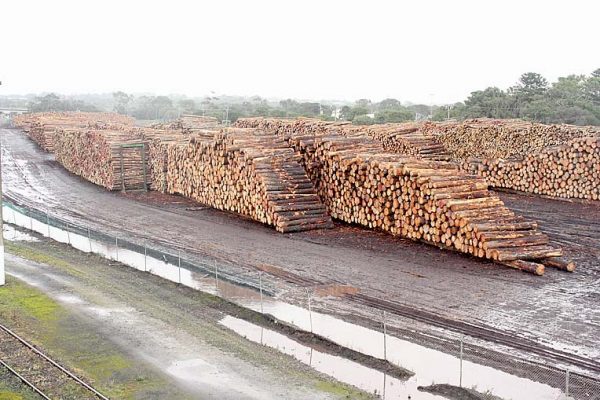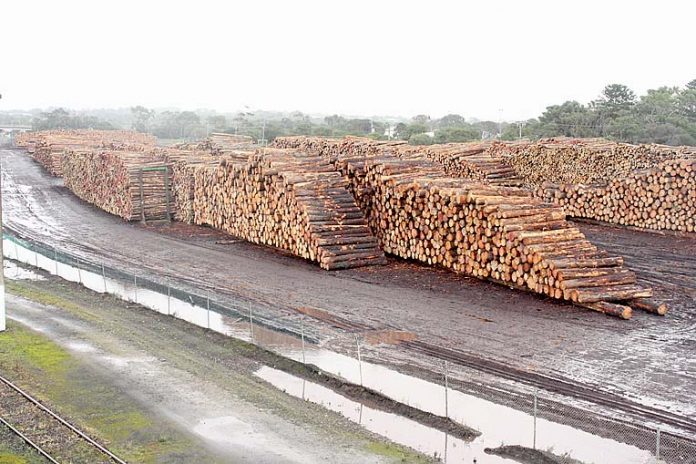
THE South Australian Timber Processors Association has thrown its weight behind recent calls by federal and state parliamentarians for better management of export contracts to limit the number of logs bypassing South East sawmills for the Chinese export market.
SATPA chief executive David Quill told The Border Watch his members were totally supportive of calls by Member for Mount Gambier Troy Bell and Federal Member for Barker Tony Pasin to prioritise the local timber industry to sustain and grow local jobs.
“The exporting of plantation-grown softwood logs should be confined to those products that cannot be used by our highly efficient domestic processing industry,” Mr Quill said.
“We are exporting jobs with the current policies of major forestry growers.
“This is no different from the farce of gas producers selling cheaply to overseas dealers while we must import gas for domestic use – it is ridiculous and makes no sense to sell our natural resources from under local jobs.”
Mr Quill said it was time for action by government.
“Our members are getting tired of voicing their concerns to all levels of government about the need for a serious audited review of cost, volume and term of supply agreements from forest growers,” he said.
“We may be a small group of small businesses, but the big businesses also fear for their long-term wood supplies.”
Mr Quill said SATPA was in favour of the export of fibre, but only when it is not at the expense of the domestic market.
“Product that can be used by domestic processors continues to be exported, namely potential preservation material and saw logs that our members turn into useful products for other local industries,” he said.
“A good example is the national shortage of posts required by the viticultural industry for maintenance and rejuvenating vineyards.”
Mr Quill said figures obtained by SATPA showed Australia continued to increase imports of timber products while exporting record volumes of softwood logs.
“Australian domestic manufacturers need reasonable terms of contract in any supply agreement and a level playing field,” he said.
“At the moment, we are operating at significant disadvantage because the Chinese Government is assisting processors with subsidies and they also operate at almost no level of safety and environmental compliance, which is a huge saving to them and potentially a human rights offence.”
Mr Quill’s comments come after Mr Pasin recently warned in parliament South East regional timber processors were stymied for growth because of the ongoing direct export of raw logs to overseas processors.
He said prospects for growth in the processing industry in forestry regions were limited by the lack of access to domestic log supply – “not because we do not have access to that resource, but because we are exporting that resource in the
form of raw logs directly to overseas processors”.
Soon afterwards, Mr Bell called for a prioritisation of local log supply to create local job opportunities.
He said a level playing field did not exist for local businesses competing for log supply with the export market.
Mr Bell said there were hundreds of jobs that could be created in the South East if exports of raw log were reduced.








